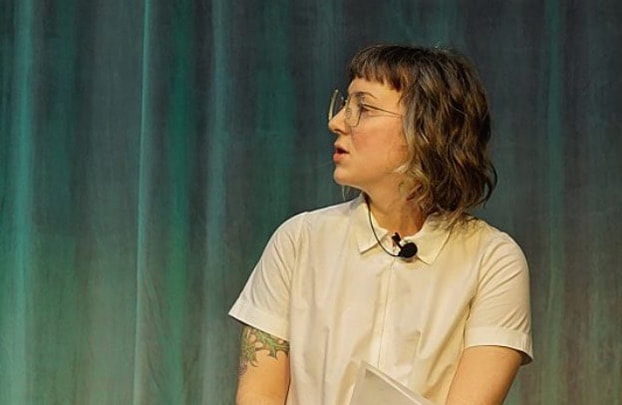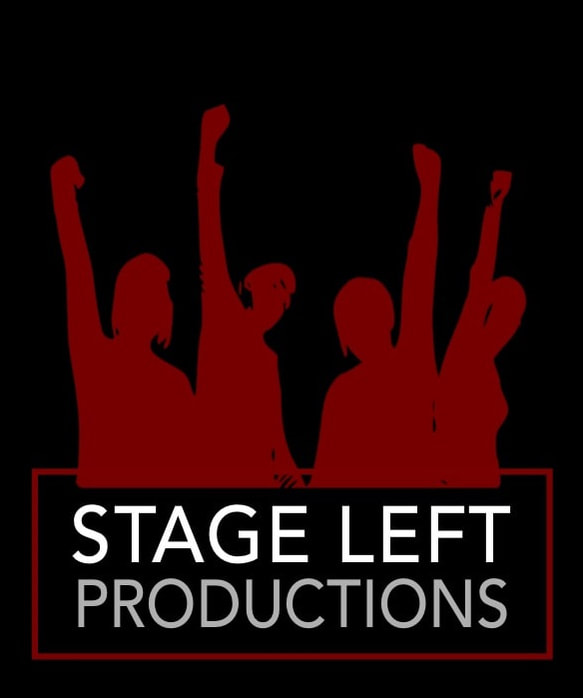DDMSTC Arts > THE ARt
|
VISION: DDMAAC cultivates conduits of cultural affinity, artistic autonomy and disability justice in Canada's Deaf/ Disability/ Mad Arts domain,
and promotes the collective interests of artists whose lived experience of disablement advances artistic and aesthetic non-normativity.
and promotes the collective interests of artists whose lived experience of disablement advances artistic and aesthetic non-normativity.
INCLUSIVE Framing of THE DOMAIN |
PRACTICE-Centric RESOURCES |
|
Out of Dis/Engaged, DDMAAC's 2018 solidarity-building retreat, came a clear indication that current framings of "Deaf, Disability & Mad Arts" privilege the colonial settlers among us; because current framings are too exclusive of our diverse peers, colleagues and collaborators.
As a result, as one small action in the interests of disability justice, DDMAAC is integrating a more inclusive abbreviation than "dis arts" or "Deaf/Dis/Mad Arts" into our disability justice practice and programming, via this acronym: DDMSTCA: • D: Deaf/ deaf/ hard of hearing... • D: Disabled, person with a disability... • M: Mad/ mentally ill, psychiatric care survivor.... • S: Sick/ Spoonie/ Survivor... • T: Trauma-Impacted (social/ relational/ inherited/ intergenerational/ environmental/ transnational interpersonal)... • C: Colonized... • A: Arts/ Artistic practice/ Aesthetic non-normativity Because "access" is merely the condition for dis arts, not the goal, and the point of DDMSTC cultures is to give YOU access to OUR worlds, not vice versa. Which is also why you won't see DDMAAC championing things like relaxed performances (so many of our colleagues now have it covered, thanks); we will instead invite you into, for example, our disability justice-based "non-normative aesthetics" labs and our Practice-Centric Disability Theatre Symposium (both coming in the Fall of 2022). |
These documents represent some artist-generated DDMSTC Arts knowledge, from the DDMAAC team:
2020: Beyond Access Expanding the Discourse Around DDMSTC* Arts barriers by Michele Decottignies, for Pacific Opera Victoria 2019: A Practice-Centric Framework of Canada's Deaf/ Disability/ Mad Arts domain. by Michele Decottignies, from knowledges shared at Dis/Engaged, DDMAAC's Solidarity-Building Retreat 2018: Asking Questions About Mental Health in the Arts by Jenna Reid, for Canadian Art 2018: A Canadian Arts Equity Framework by Michele Decottignies, for Stage Left Productions 2017: CINARS Presentation on DDMSTCA Aesthetics by Michele Decottignies, for CAPACOA @ CINARS 2017: Keynote Address by Michele Decottignies, for URegina Accessibility & Inclusivity in the Arts Mini-Symposium. 2016: Disability Inequity in the Disability Arts Domain by Michele Decottignies, for Canadian Theatre Review 2016: Barak ade Soleil comments on DDMSTCA in Canada NOTE: No ASL, FSL or other translations on linked-to video 2016: CAPACOA Presentation on DDMSTCA Practices by Michele Decottignies, for The Culture of Community Summit 2015: Presentation to ASO Sector by Michele Decottignies, for annual NAS0 mtg with CCA 2014: Canada Council for the Arts Presentation by Michele Decottignies, for CCA's Lunch & Learn PD Series 2012: Cancer Comedy by Meg Torwl, commissioned by Stage Left for Canadian Women's Studies 2006: Disability Theatre & Power by Alan Shain, Master of Social Work Thesis 2000: Research that Hurts or Helps? by Rachel Gorman, Master of Arts Thesis |
*DDMSTC Arts: D/deaf/ hard of hearing; Disabled/ person with a disability; Sick/ spoonie/ survivor; Traumatized; Colonized....
ACKNOWLEDGEMENTS
DDMAAC acknowledges the Original Peoples in Canada as the sovereign stewards of the traditional territories we now occupy. We also acknowledge our Treaty obligations, and work daily to maintain good relations and uphold the 94 Calls to Action from the Truth & Reconciliation Commission.
We apologize for not yet being able to secure the funding needed to bridge the digital divide; meaning that we can't afford to provide full and proper access to our website and literature (which is ironic, considering that DDMAAC is Canada's only national arts support organization specifically attending to the collective interests of professional, diverse artists who live with some form of impairment!).
DDMAAC acknowledges the Original Peoples in Canada as the sovereign stewards of the traditional territories we now occupy. We also acknowledge our Treaty obligations, and work daily to maintain good relations and uphold the 94 Calls to Action from the Truth & Reconciliation Commission.
We apologize for not yet being able to secure the funding needed to bridge the digital divide; meaning that we can't afford to provide full and proper access to our website and literature (which is ironic, considering that DDMAAC is Canada's only national arts support organization specifically attending to the collective interests of professional, diverse artists who live with some form of impairment!).




